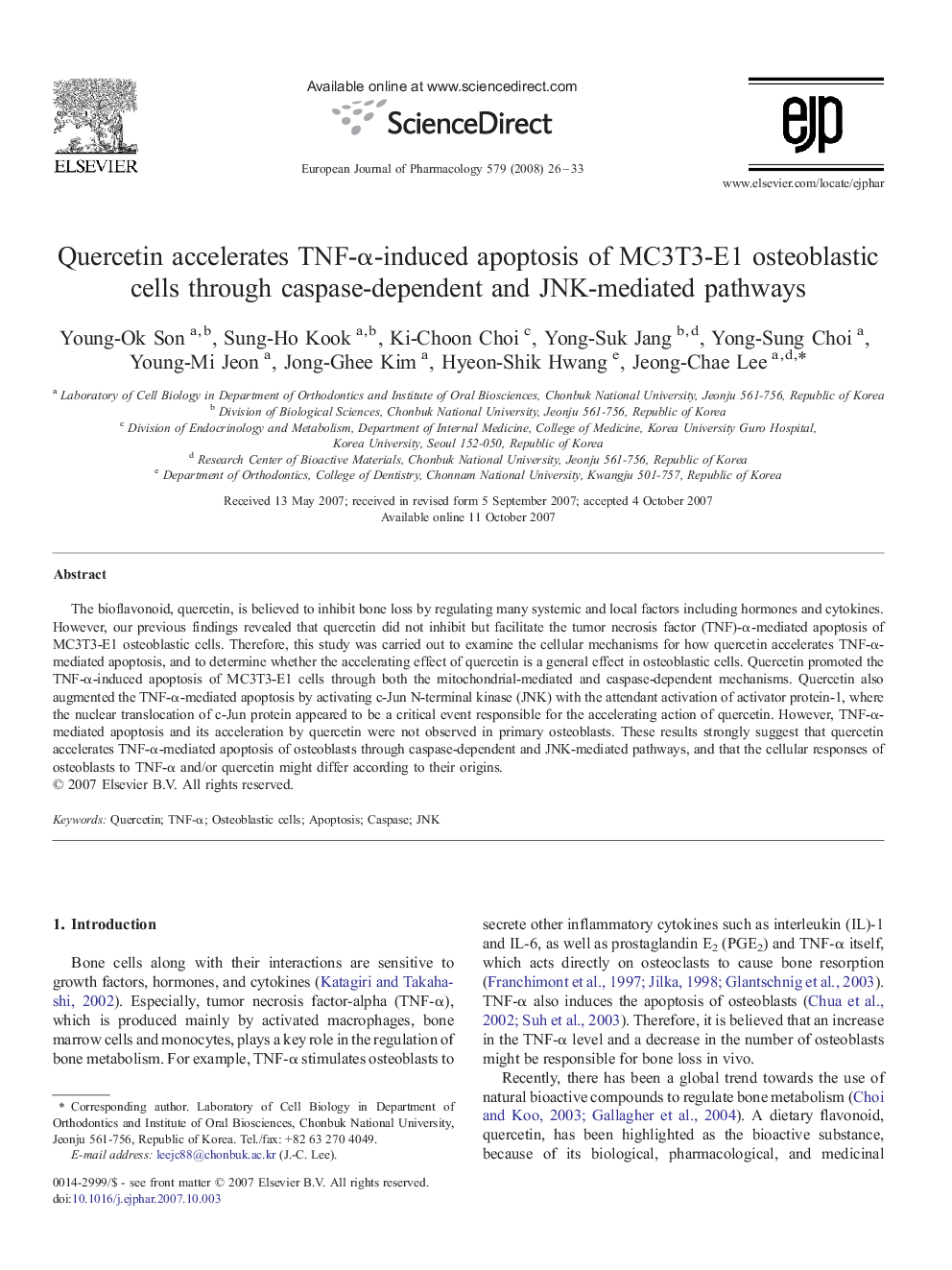| Article ID | Journal | Published Year | Pages | File Type |
|---|---|---|---|---|
| 2535530 | European Journal of Pharmacology | 2008 | 8 Pages |
The bioflavonoid, quercetin, is believed to inhibit bone loss by regulating many systemic and local factors including hormones and cytokines. However, our previous findings revealed that quercetin did not inhibit but facilitate the tumor necrosis factor (TNF)-α-mediated apoptosis of MC3T3-E1 osteoblastic cells. Therefore, this study was carried out to examine the cellular mechanisms for how quercetin accelerates TNF-α-mediated apoptosis, and to determine whether the accelerating effect of quercetin is a general effect in osteoblastic cells. Quercetin promoted the TNF-α-induced apoptosis of MC3T3-E1 cells through both the mitochondrial-mediated and caspase-dependent mechanisms. Quercetin also augmented the TNF-α-mediated apoptosis by activating c-Jun N-terminal kinase (JNK) with the attendant activation of activator protein-1, where the nuclear translocation of c-Jun protein appeared to be a critical event responsible for the accelerating action of quercetin. However, TNF-α-mediated apoptosis and its acceleration by quercetin were not observed in primary osteoblasts. These results strongly suggest that quercetin accelerates TNF-α-mediated apoptosis of osteoblasts through caspase-dependent and JNK-mediated pathways, and that the cellular responses of osteoblasts to TNF-α and/or quercetin might differ according to their origins.
